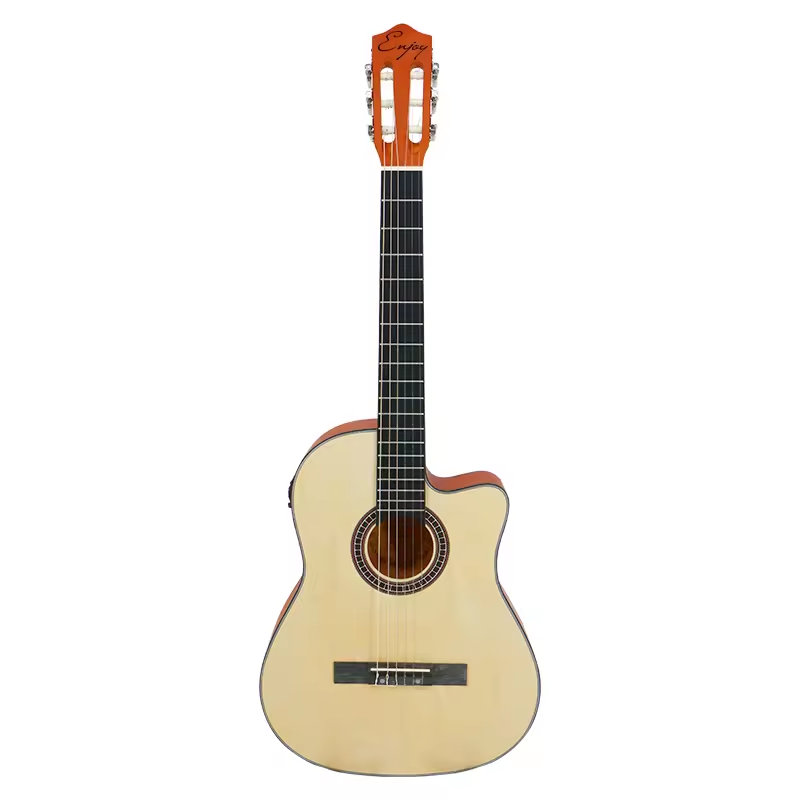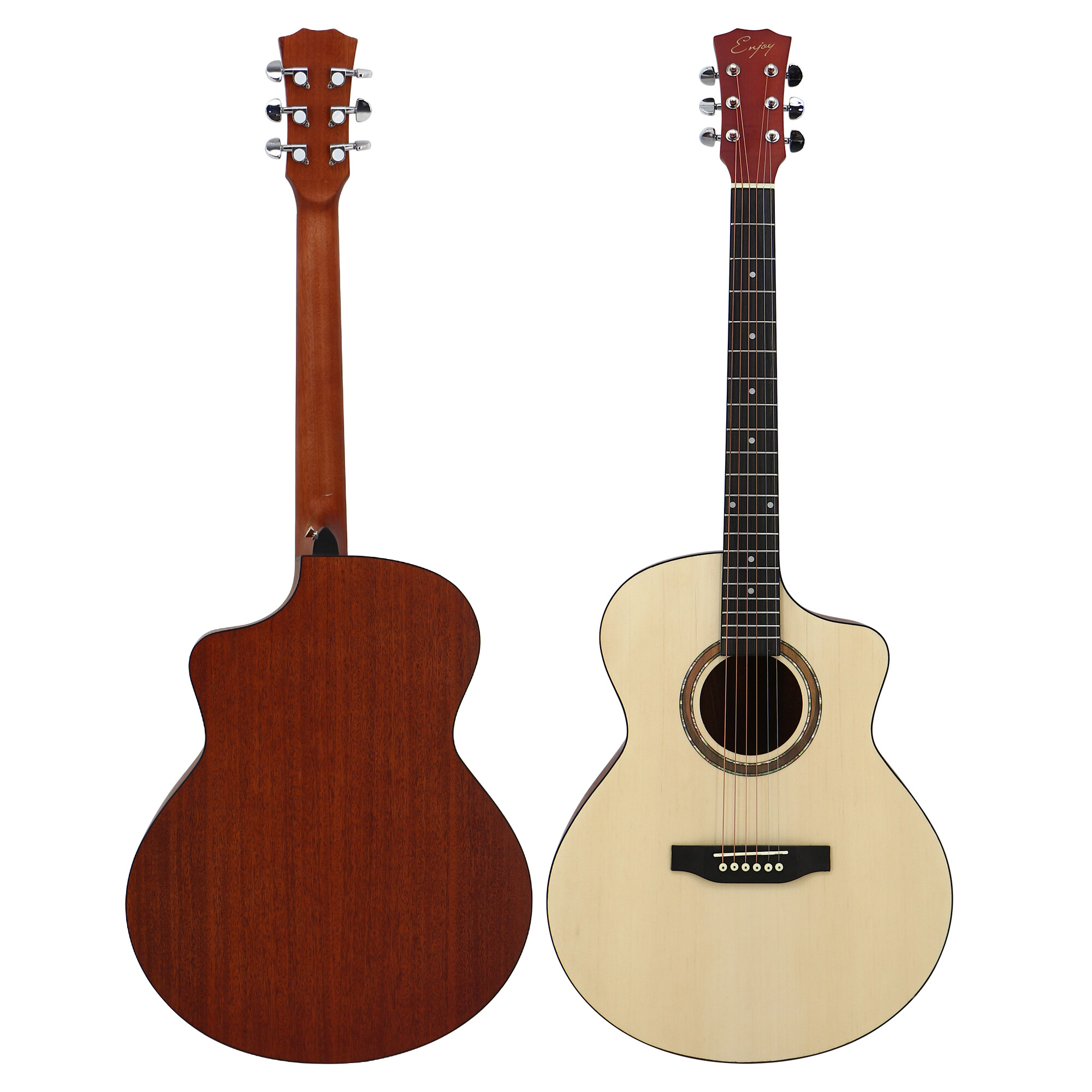The choice of guitar for beginners depends on their musical interests, learning goals, and personal preferences. The differences between a classical guitar and an acoustic guitar (often referred to as a steel-string guitar) lie in their design, sound, and playing style. Here are the main distinctions and the type of learners each is suited for:
Classical Guitar

Features:
String Material: Classical guitars use nylon strings, which are softer and easier to press down, making them more beginner-friendly.
 Neck Width
Neck Width: The neck of a classical guitar is usually wider, with more space between the strings, helping to reduce the chances of pressing the wrong string
Tone: The sound of a classical guitar is warm and mellow, making it ideal for classical music, flamenco, and some Latin music.
Playing Style: Classical guitars are typically played fingerstyle, using the fingers to pluck the strings rather than a pick.
Suitable for:
- Learners interested in classical music, flamenco, or fingerstyle playing.
- Beginners who prefer softer strings that are gentler on the fingers.
- Those looking to develop good finger technique and foundational skills.
Acoustic Guitar (Steel-String Guitar)

Features:
String Material: Acoustic guitars use steel strings, which are harder and produce a louder, brighter sound but can be tougher on the fingers for beginners.
 Neck Width
Neck Width: The neck of an acoustic guitar is narrower, making it easier to play chords or fast strumming, though the closer string spacing can make it easier to accidentally touch adjacent strings.
Tone: The tone of an
acoustic guitar is bright and clear, suitable for pop, rock, country, and other styles.
Playing Style: Acoustic guitars can be played fingerstyle or with a pick, accommodating a wide range of musical styles.
Suitable for:
- Learners interested in pop, rock, folk, or country music.
- Those who plan to sing along or join a band in the future.
- Beginners willing to endure initial finger discomfort to gain versatility in their playing.
Recommendation
- If you’re interested in classical music, fingerstyle techniques, or prefer a softer tone, a classical guitar may be a better choice. The nylon strings are more forgiving on the fingers, making it easier for beginners.
- If you prefer pop, rock, folk, or plan to accompany singing, an acoustic guitar may suit you better. While the steel strings can be more challenging, their versatility and widespread use make them a popular choice.
Ultimately, the choice of guitar should be based on your musical interests and the type of playing you envision in the future. Regardless of which guitar you choose, consistent practice is key to success.







